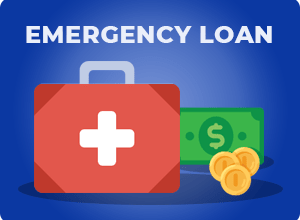A credit bureau is an organization that gathers and analyzes consumer credit data and sells it to lenders for a fee so they can decide whether to extend credit or make loans. It is also known in the United States as a credit reporting agency since it gathers, examines, and disseminates data about people’s credit.
The three major credit bureaus in the United States handle the majority of the reporting, and the credit reports they offer can have a significant influence on crucial financial decisions like applying for a loan, getting a new credit card, or buying a home.
Every 12 months, each credit bureau is required to provide one free credit report to each individual. What else do we know about the credit bureaus, though? It’s all here!
Knowing how credit bureaus operate may help you keep or get in better financial shape in such ways as:
- Creditors can decide whether to grant loans by using the credit information that a credit bureau gathers, investigates, and then sells to them for a fee.
- Experian, Equifax, and TransUnion are the top three credit bureaus in the United States, though there are a number of others as well.
- Based on the credit histories they compile, credit bureaus assign credit scores to people.
- Your credit score plays a significant role in determining whether and under what conditions you will be approved for credit.
- Credit bureaus merely gather and synthesize information about your credit risk and provide it to lending institutions; they do not make decisions about whether or not you will be granted credit.
What Does Credit Bureau Do?
Credit bureaus are specialized businesses that collaborate with various lending institutions and creditors to support them in their lending decisions.
Lending institutions are businesses, like banks and credit unions, that borrow money from depositors and return it to them with interest.
Then, in order to make money, the lending institutions will profitably lend out a portion of those deposits at a higher rate.
However, in order to prevent borrowers from defaulting on the loans they take out, lenders must make sure that their borrowers have sufficient credit standing.
The top three credit reporting agencies in the US are:
- Equifax
- TransUnion
- Experian
However, there are some smaller bureaus that also offer credit information. As was already mentioned, lending institutions need credit information to assess the creditworthiness of their borrowers.
Due to the effectiveness of credit bureaus, the following may happen:
- A borrower may be turned down for credit or be charged a higher interest rate to make up for the increased risk if they appear to be less creditworthy.
- Lenders, on the other hand, will charge borrowers with excellent credit a lower interest rate because they pose less of a risk to them.
- It is important to note that credit bureaus do not decide whether or not to grant credit to an individual. They merely gather and combine the data for the lenders to consider when making their decisions.
- The information is sold by credit bureaus to lending institutions for a fee as well as to people who want to learn about their own credit histories.
What Type Of Information Do Credit Bureaus Collect?
Your data is analyzed by individual algorithms used by each of the three credit bureaus to create a credit score. However, in general, they base their decisions on the same broad criteria when assessing your credit.
- Personal information
This information includes your full legal name (or any previous names), current and past addresses, Social Security number, birth date, and employer.
- Account history
Your payment history is examined by credit bureaus. They will evaluate your current credit card debt, the total of your other debts, and the standing of your various accounts. They’ll also consider the credit limits you’ve been granted.
- Your public information
The credit bureaus also review publicly available financial events like bankruptcies or liens.
They also collect the following information:
- Negative details like missed payments, collections, bankruptcies, foreclosures, and repossessions
- Hard inquiries
It’s important to note that some businesses might take these and other factors into account when evaluating your credit application.
What Are The 3 Credit Bureaus?
There are numerous different consumer reporting agencies in the US, but the top three are Equifax, Experian, and TransUnion.
This is because the market for gathering data on consumers in the credit markets is dominated by this trio.
#1. Equifax Credit Bureau:
Founded in 1899 and with a headquarters in Atlanta, Equifax employs about 14,000 professionals and conducts business in 24 different countries.
It claims to be the market leader in the majority of the nations where it is present and is particularly strong in the South and Midwest of the United States.
#2. Experian Credit Bureau:
Experian originally handled reports for the Western United States and had its domestic headquarters in Costa Mesa, California.
The company has corporate headquarters in Dublin, Ireland, and employs about 22,000 people across 30 nations.
#3. TransUnion Credit Bureau.
TransUnion, headquartered in Chicago and founded in the 1960s, employs over 10,000 people and has regional offices in Hong Kong, India, Canada, South Africa, Colombia, the U.K., and Brazil.
How Do I Contact The Experian Credit Bureau?
You can contact Experian Credit Bureau in either one of the following ways:
#1. Online:
Log into your Experian account or register to get an account with them. Once you’ve logged in, you can go to the Help Center to find ways to navigate your credit status.
#2. Phone:
Optionally, you can dial 888-397-3742 to contact their customer service representative.
#3. Mail:
You can also send a mail to:
Experian Information Services LLC, P.O. Box 9554, Allen, TX 75013
Note that you might have to wait up to three days before you can get a response if you choose to contact them via mail.
How Do I Contact The Equifax Credit Bureau?
You can contact Equifax Credit Bureau in either one of the following ways:
#1. Online:
You can log in or register for an Equifax account to get your credit report online.
Once you’ve registered for an account on the Equifax website, you can manage your credit availability in real-time.
#2. Phone:
Also, you can call 888-298-0045 to speak to an Equifax customer service representative. To do this, you’ll be asked to verify your identity by providing a one-time PIN by text.
#3. Mail:
Additionally, you can also send a letter asking for assistance with your credit report.
Send the letter to:
Equifax Security Freeze, P.O. Box 105788, Atlanta, GA 30348-5788
If you choose to manage your credit report by mail, you may have to wait up to three days after your request has been received to get a response.
Note that when you submit your letter, you must include your contact information as well as proof of identity.
How Do I Contact The TransUnion Credit Bureau?
You can contact the TransUnion Credit Bureau in either one of the following ways:
#1. Online:
Visit the TransUnion Credit Bureau to get a report on your credit score.
#2. Phone:
Alternatively, you can contact them in real-time at TransUnion by calling 800-680-7289.
#3. Mail:
You can also send a letter asking for your credit to be unfrozen. Send the email to:
TransUnion Consumer Solutions, P.O. Box 2000, Chester, PA 19016-2000
How Do You Check If You Are On Credit Bureau?
Logging into the Annual Credit Report site or dialing the toll-free number 1-877-322-8228 allows you to request a free copy of your credit report from each of the three major credit reporting agencies, Equifax, Experian, and TransUnion, once a year.
Additionally, if you’ve been turned down for credit, are receiving welfare, are unemployed, or your report is inaccurate, you have a right to see your credit report within 60 days.
Each of the three credit reporting agencies should provide you with a copy of your credit report, which you should carefully review as each one could be inaccurate or contain inconsistent data.
Finally, if you find a mistake on one of your consumer reports, you should file a complaint with the organization.
How Do You Get Cleared From a Credit Bureau?
Here are some techniques to help you remove negative information from your credit report so you can move toward having better credit.
#1. Send a complaint to the Bureau
You have a right under the FCRA to an accurate credit report, and as a result of that clause, you have a right to raise discrepancies with the credit bureau.
Online or mail-in credit report disputes are the simplest to submit. You need to have recently requested a copy of your credit report in order to file a dispute online. You have the option to file a complaint with the credit bureau that generated the credit report.
#2. Repay all your debts.
If you still owe money on your credit cards, you should make an effort to pay it off. This is especially important because your credit score heavily depends on your credit utilization rate, which is the ratio of your total debt to your credit limit.
#3. Dispute with the company that submitted the credit bureau report
When you find an error in your credit report, you can completely avoid the credit bureau and file a dispute with the company that reported the error to the credit bureau, and the company must conduct an investigation just like the credit bureau.
Businesses must notify credit bureaus of errors to correct them.
#4. Submit a request for removal.
You can now request a “goodwill” deletion as a form of mercy by sending a letter to the organization.
Note that, creditors are not required to comply with your request.
#5. Wait until the credit reporting time limit expires.
Your only option, if all else fails, is to wait for those negative items to disappear from your credit report. Fortunately, the majority of unfavorable information can only be reported for seven years under the law.
What are the 4 Major Credit Bureaus?
The big three credit bureaus, Equifax, Experian, and TransUnion, are known to the majority of people.
Each is a publicly traded, for-profit business that is governed in some ways by the Fair Credit Reporting Act of the federal government.
So what is the fourth major credit bureau available to people:
Innovis Credit Report
Innovis offers consumers similar services, such as fraud alerts, dispute resolutions, and security freezes, as the three major credit reporting agencies. The credit reports from the larger bureaus and Innovis are comparable.
What appears on your credit report can differ, just like the three major agencies. The primary distinction is that Innovis doesn’t offer a credit score.
Contact details:
Website: Innovis.com
Phone number: 800-540-2505 or 866-712-0021
Mailing address: Innovis Consumer Assistance, P.O. Box 530089, Atlanta, GA 30353-0089
- HOW TO GET A BUSINESS LOAN WITH BAD CREDIT: All You Should Know.
- Credit Reporting Bureau: What is Credit Reporting Bureau?
- HOW MUCH ARE SAVINGS BOND WORTH? All You Need To Know






